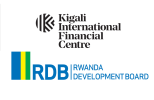The Impact of Mining in Central African Republic
The Central African Republic (CAR) is a land rich in mineral resources. From diamonds to gold, uranium to rare earth elements, the country’s geological landscape is a treasure trove.
Yet, the mining sector in CAR is a complex web of opportunities and challenges. It’s a key player in the country’s economy, but it also presents significant social and environmental issues.
In this article, we delve into the impact of mining in the Central African Republic. We’ll explore the historical context, the economic contribution, and the prevalent artisanal and small-scale mining activities.
We’ll also examine the legal framework governing the sector, the challenges it faces, and the environmental and social implications.
From the role of foreign investment to the issue of conflict minerals, we’ll provide a comprehensive overview of the current state of mining in CAR.

Join us as we navigate the intricate landscape of resource extraction in this central African nation.
Central African Republic’s Rich Mineral Landscape
The Central African Republic is blessed with a diverse range of mineral resources. This wealth is spread across the country’s vast and varied geological landscape.
Diamonds are the most well-known of these resources. They are found in abundance, particularly in the western region of the country.
Gold, uranium, and rare earth elements are also present. These minerals offer significant potential for economic development and foreign investment.
However, the full extent of CAR’s mineral wealth is yet to be discovered. Ongoing exploration activities continue to reveal new deposits.

Historical Context and Economic Contribution of Mining
Mining has long been a cornerstone of the Central African Republic’s economy. It has played a significant role in shaping the country’s history and development.
Diamond mining, in particular, has been a major source of income. It contributes significantly to the country’s Gross Domestic Product (GDP).
However, the sector’s potential has been hindered by various challenges. These include political instability, lack of infrastructure, and inadequate regulation.
Despite these obstacles, mining remains a key driver of economic growth. It continues to offer opportunities for job creation and poverty reduction.
Artisanal and Small-Scale Mining (ASM) in CAR
Artisanal and small-scale mining (ASM) is widespread in the Central African Republic. It is a significant part of the country’s mining sector.
ASM primarily involves the extraction of diamonds and gold. These activities are often carried out by local communities.
However, ASM is fraught with challenges. These include poor working conditions and environmental degradation.
Despite these issues, ASM provides a livelihood for many. It plays a crucial role in the local economy.
“
Legal Framework and Governance of Mining Sector
The Central African Republic has a legal framework for mining. This includes laws and regulations governing resource extraction.
However, enforcement of these laws is often weak. This is due to a lack of resources and capacity.
Corruption is also a significant issue. It undermines the effectiveness of the legal framework.
Despite these challenges, efforts are being made to strengthen governance. This includes improving transparency and accountability in the sector.
The government is also working to attract foreign investment. This is seen as key to developing the mining sector.
Challenges Facing the Mining Industry in CAR
The mining industry in CAR faces numerous challenges. One of the main issues is the lack of infrastructure.
Roads, power, and water supply are often inadequate. This makes mining operations difficult and costly.
Another challenge is the lack of skilled labor. Many workers in the sector are untrained and inexperienced.
Security is also a major concern. The country has been plagued by conflict and instability, which disrupts mining activities.
Lastly, the sector is also affected by fluctuations in global commodity prices. This can lead to uncertainty and volatility in the industry.
Environmental and Social Implications of Mining
Mining in the Central African Republic has significant environmental implications. One of the most pressing issues is deforestation.

Mining activities often require clearing large areas of forest. This leads to habitat loss and biodiversity decline.
Water pollution is another environmental concern. Mining can contaminate water sources, affecting both people and wildlife.
On the social front, mining can lead to displacement of local communities. This can cause social unrest and conflict.
Moreover, there are concerns about the impact of mining on women and children. They often face exploitation and adverse health effects.
Here are some key points to consider:
- Mining can lead to deforestation and loss of biodiversity.
- Water sources can be contaminated by mining activities.
- Local communities, especially women and children, can be negatively affected by mining.
Addressing these issues is crucial for sustainable mining in the Central African Republic.
The Role of Foreign Investment and Conflict Minerals
Foreign investment plays a significant role in the Central African Republic’s mining sector. It brings in much-needed capital and technology.
However, it also raises concerns. Some foreign companies have been accused of exploiting local resources without adequate compensation.
Conflict minerals are another critical issue. These are minerals mined in conditions of armed conflict and human rights abuses.
Diamonds and gold from the Central African Republic have been linked to such conflicts. The revenue from these minerals can fuel violence and instability.
Addressing these issues is crucial for the sustainable development of the mining sector in the Central African Republic.
Efforts Towards Sustainable Mining and Development
Efforts are underway to make mining in the Central African Republic more sustainable. These initiatives aim to balance economic growth with environmental and social responsibility.
One such effort is the Kimberley Process. This international initiative aims to prevent the trade in conflict diamonds.
Another approach is promoting responsible mining practices. This includes ensuring fair wages and safe working conditions for miners.
However, achieving sustainable mining in the Central African Republic is a complex task. It requires the cooperation of all stakeholders, including the government, mining companies, and local communities.
The Future Outlook for Mining in CAR
The future of mining in the Central African Republic is uncertain. The sector faces numerous challenges, including political instability and lack of infrastructure.
However, there is also potential for growth. The country’s rich mineral resources remain largely untapped. With the right investment and governance, the mining sector could significantly boost the country’s economy.
Technological advancements could also play a role. Modern mining techniques and equipment could increase efficiency and reduce environmental impact.
Ultimately, the future of mining in CAR will depend on the ability to balance economic growth with social and environmental responsibility.
Conclusion: Balancing Growth with Responsibility
The mining sector in the Central African Republic holds great potential. It could drive economic growth and provide much-needed employment.
However, it’s crucial to balance this growth with responsibility. The environmental and social impacts of mining cannot be ignored.
Efforts must be made to ensure that mining benefits local communities. This includes fair wages, safe working conditions, and respect for land rights.
In conclusion, the future of mining in CAR depends on a delicate balance. It’s about harnessing the country’s mineral wealth, while also protecting its people and environment.


 by Alex Perez (https://unsplash.com/@a2eorigins)
by Alex Perez (https://unsplash.com/@a2eorigins) by British Library (https://unsplash.com/@britishlibrary)
by British Library (https://unsplash.com/@britishlibrary) by Edouard TAMBA (https://unsplash.com/@tamba)”
by Edouard TAMBA (https://unsplash.com/@tamba)” by Shubham’s Web3 (https://unsplash.com/@shubzweb3)
by Shubham’s Web3 (https://unsplash.com/@shubzweb3) by British Library (https://unsplash.com/@britishlibrary)
by British Library (https://unsplash.com/@britishlibrary) by Ian Schneider (https://unsplash.com/@goian)
by Ian Schneider (https://unsplash.com/@goian) by Scott Graham (https://unsplash.com/@homajob)”
by Scott Graham (https://unsplash.com/@homajob)” by Shubham’s Web3 (https://unsplash.com/@shubzweb3)”
by Shubham’s Web3 (https://unsplash.com/@shubzweb3)” by Vonecia Carswell (https://unsplash.com/@voneciacarswell)”
by Vonecia Carswell (https://unsplash.com/@voneciacarswell)” by Tevei Renvoyé (https://unsplash.com/@teveir)
by Tevei Renvoyé (https://unsplash.com/@teveir) by British Library (https://unsplash.com/@britishlibrary)
by British Library (https://unsplash.com/@britishlibrary) by Amanda Silva (https://unsplash.com/@the_wander_theory)
by Amanda Silva (https://unsplash.com/@the_wander_theory) by British Library (https://unsplash.com/@britishlibrary)”
by British Library (https://unsplash.com/@britishlibrary)” by Andrew Stutesman (https://unsplash.com/@drwmrk)”
by Andrew Stutesman (https://unsplash.com/@drwmrk)” by Lukas Blazek (https://unsplash.com/@goumbik)
by Lukas Blazek (https://unsplash.com/@goumbik) by Scott Graham (https://unsplash.com/@homajob)
by Scott Graham (https://unsplash.com/@homajob) by Nik Shuliahin 💛💙 (https://unsplash.com/@tjump)
by Nik Shuliahin 💛💙 (https://unsplash.com/@tjump) by British Library (https://unsplash.com/@britishlibrary)
by British Library (https://unsplash.com/@britishlibrary) by Alex Perez (https://unsplash.com/@a2eorigins)
by Alex Perez (https://unsplash.com/@a2eorigins) by Daoud Abismail (https://unsplash.com/@daoud_abismail)
by Daoud Abismail (https://unsplash.com/@daoud_abismail) by British Library (https://unsplash.com/@britishlibrary)
by British Library (https://unsplash.com/@britishlibrary) by Kalen Emsley (https://unsplash.com/@kalenemsley)
by Kalen Emsley (https://unsplash.com/@kalenemsley) by Sergey Pesterev (https://unsplash.com/@sickle)
by Sergey Pesterev (https://unsplash.com/@sickle) by Will Shirley (https://unsplash.com/@willshirley)
by Will Shirley (https://unsplash.com/@willshirley) by British Library (https://unsplash.com/@britishlibrary)
by British Library (https://unsplash.com/@britishlibrary) by Kalen Emsley (https://unsplash.com/@kalenemsley)
by Kalen Emsley (https://unsplash.com/@kalenemsley) by Annie Spratt (https://unsplash.com/@anniespratt)
by Annie Spratt (https://unsplash.com/@anniespratt) by Will Shirley (https://unsplash.com/@willshirley)
by Will Shirley (https://unsplash.com/@willshirley) by Sergey Pesterev (https://unsplash.com/@sickle)
by Sergey Pesterev (https://unsplash.com/@sickle) by Emmanuel Ikwuegbu (https://unsplash.com/@emmages)
by Emmanuel Ikwuegbu (https://unsplash.com/@emmages)










































